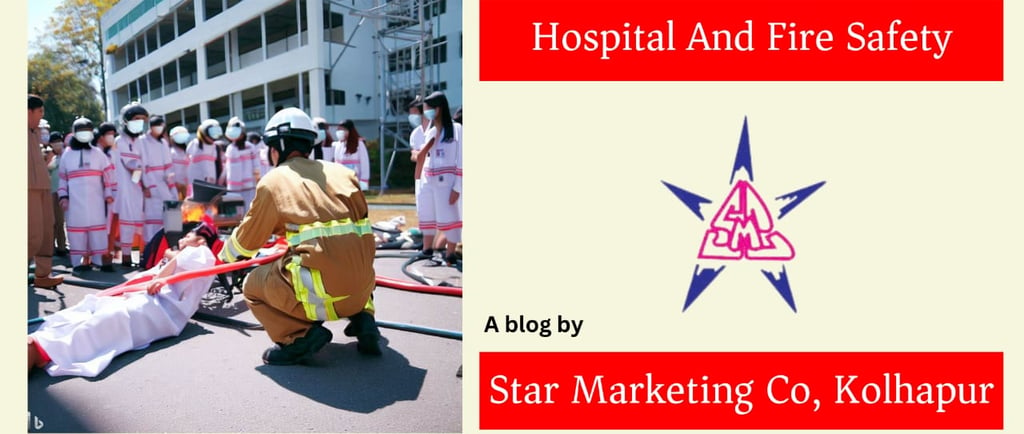Hospitals & Fire Safety
Ensuring Effective Fire Prevention Measures for hospitals


Introduction
Fire safety is a critical concern for hospitals, where the protection of patients, staff, and valuable medical equipment is paramount. This article delves into the significance of fire prevention in hospitals, exploring the role of fire fighting agencies, the importance of reliable fire equipment suppliers, and the process of obtaining a No Objection Certificate (NOC) from the fire department. By implementing robust fire prevention measures, hospitals can ensure the safety of their occupants and maintain uninterrupted healthcare services.
1. Understanding the Importance of Fire Prevention in Hospitals
Hospitals are complex environments that house vulnerable individuals, sensitive medical equipment, and a range of potentially flammable substances. Effective fire prevention is crucial to mitigate the risks associated with such settings. Hospitals must develop comprehensive fire safety plans, conduct regular risk assessments, and implement appropriate measures to prevent fires from occurring in the first place. By focusing on fire prevention, hospitals can significantly reduce the potential for devastating fires, minimize injuries, and prevent damage to critical medical infrastructure. This proactive approach also ensures uninterrupted patient care and enhances the overall resilience of healthcare facilities.
2. The Role of Fire Fighting Agencies in Hospital Fire Safety
Fire-fighting agencies play a pivotal role in ensuring the safety of hospitals. These specialized entities possess the expertise, knowledge, and resources to assess fire risks, develop emergency response plans, and conduct fire drills in hospital settings. They collaborate closely with hospital administrators and staff to identify potential fire hazards and implement appropriate preventive measures. In the event of a fire emergency, fire-fighting agencies respond swiftly, employing their specialized equipment, well-trained personnel, and established protocols to suppress and control the blaze. Their expertise is crucial in preventing the spread of fire, evacuating patients safely, and minimizing the impact on hospital operations.
3. Importance of Reliable Fire Equipment Suppliers for Hospitals
Reliable fire equipment suppliers play a vital role in ensuring hospitals have the necessary tools to prevent and combat fires effectively. These suppliers provide a wide range of fire safety equipment, including fire extinguishers, sprinkler systems, fire alarms, smoke detectors, and fire-resistant materials. Choosing the right fire equipment supplier is crucial to ensure the quality, reliability, and compliance of the products. Hospitals must partner with reputable suppliers who offer certified equipment, provide maintenance services, and offer professional guidance on the selection and installation of fire safety systems.
4. The Process of Obtaining a No Objection Certificate (NOC) from the Fire Department
Obtaining a No Objection Certificate (NOC) from the fire department is a mandatory requirement for hospitals to operate legally and ensure compliance with fire safety regulations. The NOC signifies that the hospital has implemented adequate fire prevention measures and possesses the necessary fire safety infrastructure. Fire equipment suppliers and fire fighting agencies play a crucial role in assisting hospitals with the NOC process. They guide hospitals in meeting the fire department's requirements, conducting safety audits, and ensuring the proper installation and maintenance of fire safety equipment and systems.
Conclusion
Fire safety is a critical aspect of hospital management, and proactive fire prevention measures are essential to safeguard patients, staff, and valuable medical infrastructure. By working closely with fire fighting agencies, reliable fire equipment suppliers, and adhering to fire department regulations, hospitals can create a safe environment for all occupants. Prioritizing fire prevention not only mitigates risks but also ensures the uninterrupted delivery of healthcare services. By emphasizing the importance of fire safety, hospitals can foster a culture of preparedness and resilience, protecting lives and preserving the integrity of medical facilities.
